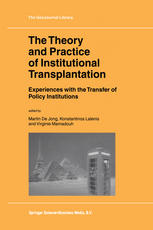

Most ebook files are in PDF format, so you can easily read them using various software such as Foxit Reader or directly on the Google Chrome browser.
Some ebook files are released by publishers in other formats such as .awz, .mobi, .epub, .fb2, etc. You may need to install specific software to read these formats on mobile/PC, such as Calibre.
Please read the tutorial at this link: https://ebookbell.com/faq
We offer FREE conversion to the popular formats you request; however, this may take some time. Therefore, right after payment, please email us, and we will try to provide the service as quickly as possible.
For some exceptional file formats or broken links (if any), please refrain from opening any disputes. Instead, email us first, and we will try to assist within a maximum of 6 hours.
EbookBell Team

0.0
0 reviewsInevitably, at a panel discussion not too long ago comparing planning cultures the discussion turned on the issue of globalisation. As a member of the panel, this author asked those in the audience who lived and/or worked in a country different from their country of origin to raise their hands. About half of the audience of well over one hundred academic teachers and researchers from all comers of the world, the present author included did so. Next he asked who had a spouse or partner from a country different from their country of origin to also raise their hands. About half of the audience, the present author included, raised their hands. This is the soft side of globalisation. The soft side of globalisation is important. Exchanges, personal mobility, international romances, multi-culturalism and multi-lingualism (inevitably meaning non-native speakers struggling to keep up with native English speakers) are part of the academic scene, so much so that we can hardly imagine it to be otherwise. These are not entirely new phenomena, but they have become ever more prominent, relying on an ever more elaborate institutional infrastructure of exchange programmes, international journals, associations and the global conference industry. It was at the AESOP (Association of European Schools of Planning) congress at Bmo in the Czech Republic in July 2000 that the plan for this book was hatched.